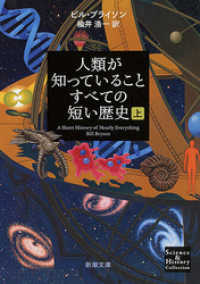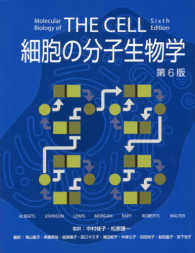Full Description
Waste and Wealth examines questions of value, labor, and morality underlining the translocal waste trading networks originating from a rural district in Vietnam. Considering waste as an economic category of global significance, this book shows migrant laborers' complex negotiations with political economic forces to remake their social and moral lives. It also illuminates how the waste traders seek to construct viable identities in the face of stigmatization, insecurity, and precarity. Waste and Wealth makes an important contribution to global studies of human economies and post-socialist transformations, demonstrating how the forces of globalization blend with local historical-cultural dynamics to shape the valuation of people and things.
Waste and Wealth is a volume in the series ISSUES OF GLOBALIZATION: CASE STUDIES IN CONTEMPORARY ANTHROPOLOGY, which examines the experiences of individual communities in our contemporary world. Each volume offers a brief and engaging exploration of a particular issue arising from globalization and its cultural, political, and economic effects on certain peoples or groups.
Contents
Preface
Field Research
Researching People on the Move
Credits and Acknowledgements
Introduction
Migrant Labor under Market Socialism: The Rise of the Peasant Entrepreneur
Waste Global: Geographies of Recycling and Human Economies
The Political Economy of Remaking
Morality and Political Economy
Waste, Labor and the Politics of Value
--Revaluing Waste
--The Labor of Waste: Gender, Class, and Performance
Exemplary Society and the Politics of Morality
Desires, Aspirations, and Fictional Expectations
Overview of the Chapters
PART I: WASTE
Chapter 1. Mobility, Networks, and Gendered Householding
Householding, Networks, and Reciprocity
Cities as the New Economic Zone
Waste Networks: Money, Reciprocity, and Distance
Staying at Home and Going Outside: Choice, Decision and Power
Inside and Outside: The Gender of Space
"Going Outside" and Remaking Gendered Spaces
Negotiating Boundaries and Remaking Gendered Ideals
Gendered Mobility and Generation
Sons, Daughters and the Limits of Mobility
Waste as a Frontier of Patrilineal Family
Conclusion: Translocality, Networks, and the Remaking of Gendered Spaces
Chapter 2. Labor, Economy and Urban Space
The Itinerant Junk Trader and Changing Urban Waste Production
The Waste Hierarchy and the Promiscuity of Waste
Waste, Migrant Labor, and the Spatialization of Class in Hanoi
Gendered Performance of Class as Access to Urban Spaces
The "Miserable Migrant": Stereotype as Bargaining Chip
Appliances versus Junk: Technology, Gendered Spaces, and Value
The Waste Depot: Place Making, Gender, and Class
Place Making in Ambiguous Spaces
Inside and Outside, Again
Moving Up: Matters of Dirt and Labor
Conclusion: Class, Gender and Urban Space Remaking
Chapter 3. Uncertainty, Ambiguity and the Ethic of Risk-Taking
Economy of Uncertainty: Pricing, Tenure and Geography of Urban Waste
Dangers in the Zones of Ambiguity
Fake Waste
State Agents
Stolen Goods and Thugs
Men on the Highway and the Art of Making Law
Conclusion: Ambiguity, Risk Taking, and Remaking the Urban Order
PART II: WEALTH
Chapter 4. Mobility, Moral Discourses, and the Anxiety of Care
Is It Better to be Uneducated and Rich? Mutually Exclusionary Discourses
Caring and Being Cared For in Translocal Households
Who Cares for the Kids? Grandparenting, Gender, and Never-Ending Worries
When Grandparents Need Care
"Social Evils" and the Disruption of Care
Conclusion: Care, Anxiety and the Remaking of Moral Obligations
Chapter 5. Rural Entrepreneurship, Local Development and Social Aspirations
A Shifting Approach to Local Development
Building the New Countryside from Urban Waste
Story of Thu and Ngoan: The Poetry of Rabbit Meat
Story of Xuân and Dai Love of the Land
Conclusion: Value, Entrepreneurship, and the Remaking of the Countryside
Chapter 6. Money and Consumption: Gendered Desires, Class Matters
Money, the Gods, and the Anxiety of Mobility
"Civilized" Living and Vacant Houses
Consuming the City and the Gender of Desire
Becoming Urban? Class Matters
Conclusion: Fictional Expectations and the Remaking of Gendered Desires
Chapter 7. An Exemplary Person, the Poor and the Limits of Remaking
Socialization and the Ethic of Striving
Vignette 1: The Queen of Waste and the Spirit of Giving
Vignette 2: In Support of the Poor Households
Ten Signatures and One Candidate for a Housing Grant
Who Deserves to Be Poor?
Conclusion: The Production of Success and Failure and the Limits of Remaking
Conclusion: The Political Economy of Remaking
The Waste Economy, Mobility and Globalization
Labor, Gender, and Class
Value and Morality
The Moral Personhood of Market Socialism
Notes
References
Index








